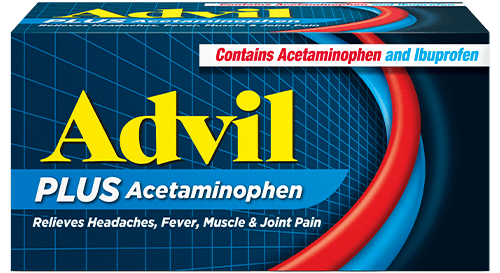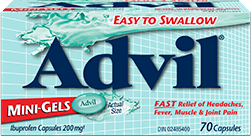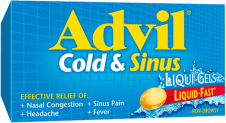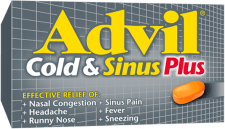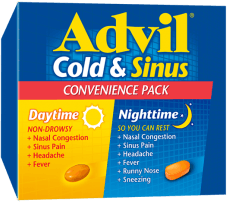Understanding the Common Cold
Learn more about how you catch a cold and how they are treated.
How Do You Catch a Cold?
How Are Colds Treated?
While a cold can make you feel miserable, colds generally are gone within a week or two. There is no cure for a cold, but here are some helpful tips to reduce your symptoms:
- Over-the-counter medications are available to help relieve pain, reduce congestion, and help clear up a runny nose, sneezing, and itchy, watery eyes. Two effective medicines are Advil Cold & Sinus and Advil Cold & Sinus Plus.
- Get plenty of rest and stay hydrated. Drinking water, juice, clear broth, or lemon water with honey helps loosen congestion and prevent dehydration. However, avoid caffeinated beverages and alcohol, because they can worsen hydration.
- Using a cool-mist vaporizer or humidifier adds moisture to the air in your home, which may help loosen congestions.
Can Colds Be Prevented?
There is no vaccine that will prevent a cold, but there are some steps you can take to reduce your chances of catching one.
- Wash your hands frequently and thoroughly to eliminate any viruses you may have picked up from touching a contaminated surface.
- Disinfect your personal items and the surfaces in your home frequently, especially if someone near you has a cold.
- Don’t share items such as towels, drinking glasses, or eating utensils.
- Encourage people to cover their nose and mouth when sneezing or coughing.
- Quitting smoking and managing stress may reduce your susceptibility to catching a cold.
Should You See a Doctor?
A cold can generally be treated with over-the-counter medicines to relieve the discomfort, but if you aren’t better after 10 days or if you develop severe symptoms, you should see a doctor. Symptoms to watch for include shaking chills, fever over 38.9°C (102°F), severe headache, neck stiffness, abdominal pain, vomiting, difficulty breathing, chest pain, or confusion. You should always consult a healthcare professional if an infant 3 months of age or younger develops a cold or fever.
Be sure this product is right for you, read and follow the label. This information is provided for informational purposes only and is not intended as a substitute of any kind for professional medical advice, diagnosis or treatment of a qualified professional as required. Speak to your healthcare professional before making any changes to your lifestyle, or beginning or discontinuing any course of treatment. Never disregard professional medical advice or delay in seeking it because of something you have read on this site.

